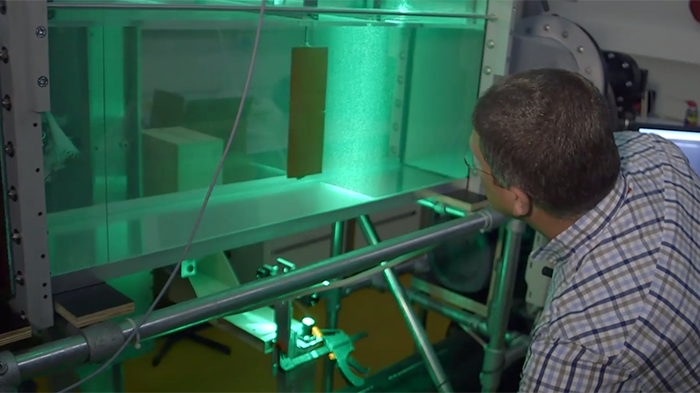New kiting technique generates energy from ‘calm’ water
University of Groningen researcher Eize Stamhuis is working with the company Sea Current to develop a new method of generating energy from tidal flows with a technology based on underwater kites. The method has significant advantages over wind and sun energy, as it can generate electricity from low-velocity flows of seawater, such as those found along the Dutch coast. What’s more, tidal flows are almost always available and are 100% predictable.
The new technology involved placing large, kite-like systems ten to twelve meters below the water surface, where they move back and forth with the flow of the water. The energy generated is brought onshore using a cable. The technology is particularly well suited to sea water with low-velocity flows, which are in abundant supply around the world, and certainly along the Dutch coast. Other technologies tend to require high-velocity flows, which are much less common.
More information

University of Groningen videos
The weekly online video magazine Unifocus highlights topics related to the University of Groningen in the fields of research and society, student life, teaching, policy and internationalization.
You can find more videos in our video portal.
More news
-
29 January 2026
Microplastic research - media hype or real danger?
-
27 January 2026
ERC Proof of Concept grant for Maria Loi
